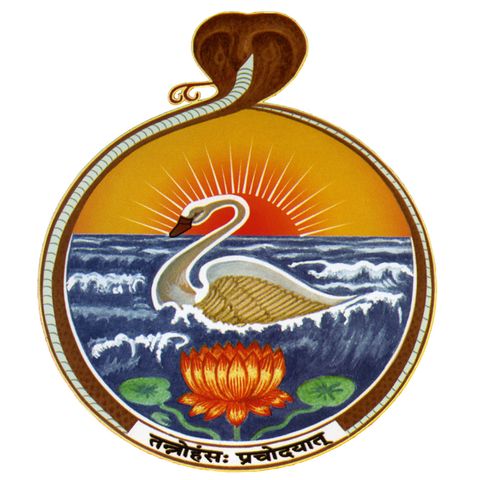Dharma and Moksha: Solving the Problems of Success in the IT Age I | Swami Tattwamayananda

Descarga y escucha en cualquier lugar
Descarga tus episodios favoritos y disfrútalos, ¡dondequiera que estés! Regístrate o inicia sesión ahora para acceder a la escucha sin conexión.
Descripción
This lecture was given on March 11, 2018 by Swami Tattwamayananda at the Vedanta Society of Northern California. -Evolution in samskrti (culture) and pariskrti (civilization) are not always linked. The...
mostra más-Evolution in samskrti (culture) and pariskrti (civilization) are not always linked. The culture of science and technology can be a cultural suicide.
-We may lose the power of mananam (deep thought) unless we learn to wield science and technology as a tool in our hands rather than as slaves.
-Since information technology quickly changes, it narrows the focus towards only short-term goals for success and happiness. Psychological problems cannot be solved at the mental level. We can get only temporary relief and we constantly have to remain active.
-The total negligence of the classics is a real problem for education because our attitudes and emotions don’t get refined.
-Four purusarthas (dharma, kama, artha, moksha) are given in Hinduism. The pursuit of kama and artha should be regulated by dharma.
-Mental health is a state of natural inner blissfulness: krta-krtyata (I have done what I ought to have done) and krtarthita (I have attained what I was trying to attain).
-Raja rishis have the efficiency and dynamism of a king but inner serenity of a sage.
-Dharma is the value that preserves tradition and culture. It supports, sustains, keeps in balance, and regulates. It teaches the need for protecting the environment.
-It is a serious problem when you have no worldly problem but you still feel a vacuum.
-When a person has practiced dharma while pursuing worldly success, they may begin to pursue a transcendental value with a strong sense of sanctity and sacredness.
-Intense spiritual seeker can meditate, read scriptures, and pursue the realization of God. Otherwise, they can found a trust to do something for others.
-Wisdom is the ability to make proper use of what we know, such as the tools of science and technology and avoid improper use of this power.
-Success is needed but we need to know the limitations of success.
-The three boons that Nachiketa asks for in the Katha Upanishad represent a person’s evolution from the desire for worldly and heavenly pleasures to what is beyond life and death.
-His third question of what exists beyond death is what takes us into the realm of culture.
-If life ends with death, then that leaves a terrible vacuum.
-If you know that you will be reborn with your mental tendencies, then material wealth will be less important than acquiring love, broadmindedness, compassion, unselfishness – a wealth that never fades.
-When you have material success but also live the values of dharma and moksha, then you obtain real success.
Información
| Autor | Vedanta Society, San Francisco |
| Organización | Vedanta Society, San Francisco |
| Página web | - |
| Etiquetas |
Copyright 2024 - Spreaker Inc. an iHeartMedia Company

Comentarios